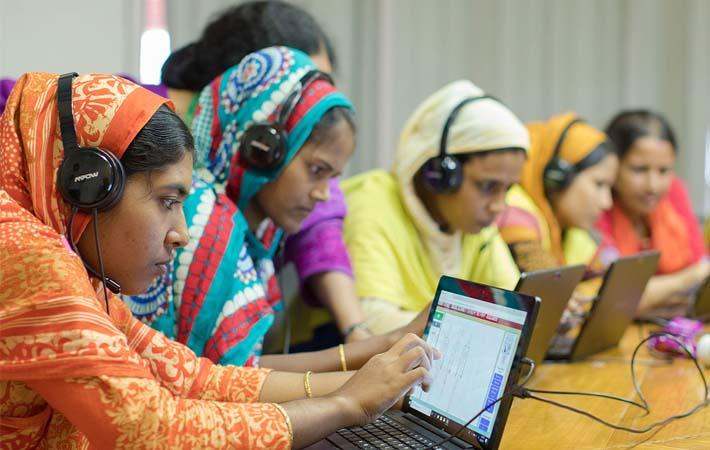Shimmy Technologies has won the first Retail Innovation Challenge: Digital Transformation, which presents technologies that could revolutionise the clothing industry. The company has developed Shimmy Upskill, a browser-based tool that uses gamification to teach workers skills like digital pattern making and 3D modeling to make clothes and accessories.
The contest was cosponsored by the IEEE Standards Association, Product Innovation Apparel, and the 3D Retail Coalition. Representatives from Target were among those who reviewed the submissions. The idea for the contest came from participants of the IEEE-SA Industry Connections 3D Body Processing programme, which is working with the clothing industry to devise standards for the capture, processing, and use of 3D body images.Shimmy Technologies has won the first Retail Innovation Challenge: Digital Transformation, which presents technologies that could revolutionise the clothing industry. The company has developed Shimmy Upskill, a browser-based tool that uses gamification to teach workers skills like digital pattern making and 3D modeling to make clothes and accessories.#
Shimmy Technologies Group is a startup in Brooklyn, NY, that is building a cloud-based, artificial-intelligence platform to improve apparel-industry workflow.
“Shimmy’s focus is on preparing the apparel sector for automation, but doing so with a people-first mindset,” Sarah Krasley, founder of the Shimmy Technologies Group, says. “That includes thinking about the future of work for this industry, how human workers are going to collaborate with machines, and how can we make that transition as just, fair, and efficient as possible.”
The current process for training people in 3D modeling is time-consuming, according to Krasley. Also, some of the software is available in English only. “We had to build a programme that was inclusive, met the workers’ skill level, and was browser-based so it would be scalable for the future,” Krasley says.
Upskill teaches garment workers computer literacy, pattern annotations, and digital layout for 3D—which is digitally stitching together pieces of an outfit and laying them on a 3D model of a human body. All the students who have participated in the pilot training sessions picked up the concepts in about four hours, Krasley says.
Krasley’s collaborators include a video game developer, a gender-policy analyst, a technical-apparel-industry veteran, an educator who specialises in teaching complex design concepts to new learners, and trainers in Bangladesh and Indonesia where Shimmy Upskill is currently testing Upskill.
Using grant money, Shimmy has conducted four pilots of the Upskill programme at several apparel manufacturers in Bangladesh and with garment workers in New York City. It plans to train workers at a glove manufacturer in Indonesia.
Winning the challenge has given Shimmy visibility, Krasley says. “We were struggling to find factories to pilot Shimmy Upskill,” she says. “We were this tiny company just starting out with this crazy idea of trying to educate a workforce that had never even used a smartphone before, so the companies didn’t understand what we were doing. The award has given us a lot of credibility. The factories that have contacted us reference it.”
The details for this year’s challenge are scheduled to be announced at the Product Innovation Apparel conference during February 19-20 in Los Angeles.
“I would encourage companies working on new technologies for the apparel and footwear industry to take this competition seriously, because it truly helped us a lot,” Krasley says. “There are definitely contests out there that are little more than public relations opportunities from the companies that run them—resulting in a lot of wasted time. But this one is the real deal.”
The clothing industry has been slow to automate its manual processes. Some of the reasons include the high cost of installing equipment compared with the unit cost of garments, a lack of research and development, and the challenge of training low-skill workers to use computers and sophisticated software. What’s more, cheap labour is still plentiful in Bangladesh, Cambodia, China, and other countries.
But as advanced technologies—such as cutting, knitting, and sewing robots—make their way to garment factories, millions of low-paid workers in Southeast Asia are expected to lose their job to automation, according to a study by the International Labour Organisation. (SV)
Fibre2Fashion News Desk – India
